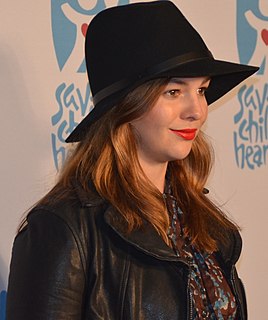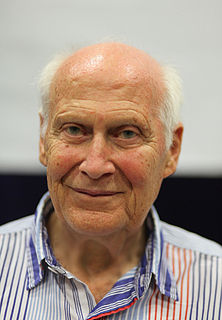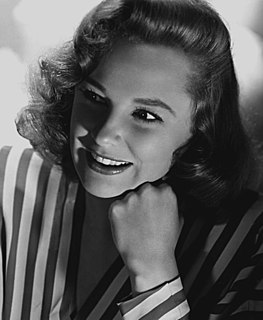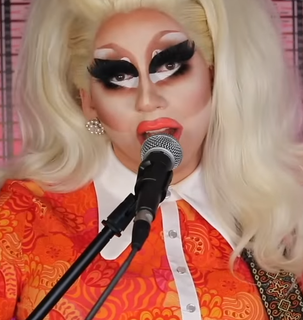A Quote by Moshe Kasher
I don't know how effective it is or isn't, but there's something weird about putting cameras on human beings, and talking on camera.
Related Quotes
I think humor really is the most effective way for me personally to express myself. When I see an incredible formalist painting, I respect it. I really do. I see its history and I get it. But when I pass something weird or something funny, I totally associate with it. I find myself thinking about it later that day. That's how I know something is thought provoking. That's how I know something is effective.
There's something very satisfying about old cameras because they're ingenious. I mean when you take them apart and actually see, 'Oh, this is how we make photographs,' it's an ingenious thing, but it feels like it's in a way a layman can appreciate, whereas a digital camera, I don't even begin to know what goes into making a digital camera.
With photography, everything is in the eye and these days I feel young photographers are missing the point a bit. People always ask about cameras but it doesn't matter what camera you have. You can have the most modern camera in the world but if you don't have an eye, the camera is worthless. Young people know more about modern cameras and lighting than I do. When I started out in photography I didn't own an exposure meter - I couldn't , they didn't exist! I had to guess.
I think we, especially in American culture, are so afraid to talk about death. And I'm not talking about literal death. I'm talking about shedding skin. I'm talking about rebirth, ultimately, and how we continue to change as human beings and continue to grow. There's that great Henry Miller quote, "All growth is a leap in the dark."
In the beginning, I want to say something about human greatness. Some time ago, I was reading texts of Kungtse. When I read these texts, I understood something about human greatness. What I understood from his writings was: What is greatest in human beings is what makes them equal to everybody else. Everything else that deviates higher or lower from what is common to all human beings makes us less. If we know this, we can develop a deep respect for every human being.
I don't think I can break down any doors, but I'm thinking, "Maybe I can be a cameraman, because I love the cameras." And the cameraman would show me how to thread the film, how to repair it, the lenses. That's when you become, like, goony goo-goo about it. You breathe and eat camera, and all of a sudden, you don't want anything else in the world. You finally know, "This is my calling." When you're passionate about something, it doesn't become work. It's art and it's fun. It's arduous, it's sweaty.
There is no limit to suffering human beings have been willing to inflict on others, no matter how innocent, no matter how young, and no matter how old. This fact must lead all reasonable human beings, that is, all human beings who take evidence seriously, to draw only one possible conclusion: Human nature is not basically good.
We all know that something is eternal. And it ain’t houses and it ain’t names, and it ain’t earth, and it ain’t even the stars . . . everybody knows in their bones that something is eternal, and that something has to do with human beings. All the greatest people ever lived have been telling us that for five thousand years and yet you’d be surprised how people are always losing hold of it. There’s something way down deep that’s eternal about every human being. -stage manager, in the play OUR TOWN
So many women have experienced horrific forms of male violence throughout their lives, and why isn't there a song about how you get depressed because of it? And you don't know what to do, and you don't know how to talk to your friends and how weird it is to be a feminist in that situation, where there's sort of the expectation that you're super-strong superwoman but you're just, like, eating pizza in your house avoiding talking about it.
A person is a person through other persons. None of us comes into the world fully formed. We would not know how to think, or walk, or speak, or behave as human beings unless we learned it from other human beings. We need other human beings in order to be human. I am because other people are. A person is entitled to a stable community life, and the first of these communities is the family.


































